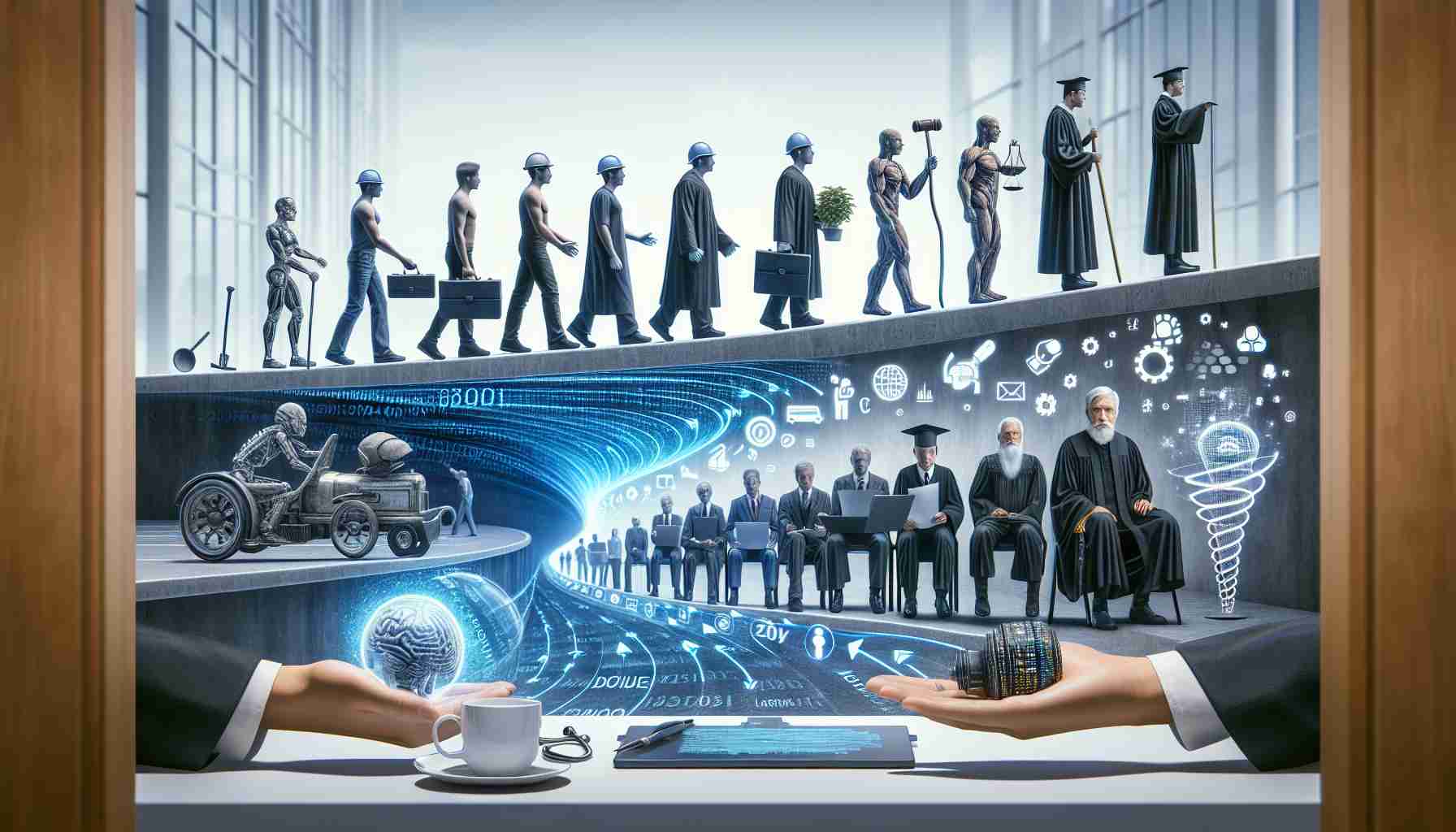The Future Job Landscape Amidst the Rise of Artificial Intelligence
As artificial intelligence continues to evolve, concerns about its impact on the workforce lead many to speculate on the job security within various industries. Historical precedence has shown that advancements in technology can indeed result in the transformation of job roles. For example, the introduction of Content Management Systems led to a significant decline in the demand for webmasters, who mainly worked with HTML.
The evolving job market now faces another technological milestone with AI. A McKinsey Report suggests that AI has the potential to displace up to 400 million jobs globally, marking a shift that may see millions needing to reskill or upskill. Notwithstanding, this transformation will also unlock new job opportunities. As routine, structured tasks become automated, there’s an increasing need for roles that rely on human creativity and complex problem-solving, skills beyond AI’s reach.
India’s burgeoning startup scene, particularly within deep tech sectors, underscores the value of human ingenuity. Despite AI being a fundamental tool in this space, it’s the human capacity for creativity and innovation that drives progress. As Nasscom reports, the number of deep tech startups in India is expected to surge, highlighting that areas requiring imagination and novel reasoning are not susceptible to AI replacement.
Adapting to the AI-Driven Economy: Educational Reform and Skills Development
To prepare for the future workforce, a recalibration of educational priorities is necessary. Rather than a strict focus on traditional theoretical knowledge, there’s a call to foster an education system that encourages exploration and practical learning. It’s essential to develop not only technical skills but also to cultivate strong cognitive abilities, alongside social and emotional competencies, such as communication and empathy.
It is vital for governments to invest more heavily in education, ensuring that curricula incorporate interdisciplinary learning, hands-on experience, and problem-solving opportunities. The integration of software and hardware knowledge, combined with domain expertise in emerging fields, will be the cornerstone of training a workforce that’s resilient to technological disruptions.
In conclusion, while AI may redefine the job market, nurturing the uniquely human qualities of creativity, intuition, and the ability to tackle unprecedented challenges will ensure that individuals are capable of thriving in the dynamic future work environment. The mandate for education systems, government policies, and individual career paths is to embrace change and prepare for a future where technology complements human potential.
Key Questions and Answers:
– What is the potential impact of AI on the global job market? AI is poised to potentially displace up to 400 million jobs worldwide, according to a McKinsey Report. This impact will vary across sectors, with some positions being entirely replaced, while others transformed or elevated by integrating AI capabilities.
– Which skills will be in demand in an AI-driven economy? As routine tasks become automated, emphasis will be placed on skills that AI cannot easily replicate such as human creativity, complex problem-solving, social and emotional competencies, cross-disciplinary knowledge, and the ability to navigate changing technologies.
– How can education systems adapt to prepare future workforces? Education systems should consider fostering problem-solving skills, interdisciplinary learning, hands-on practical experience, and continuous, lifelong learning approaches that complement traditional theoretical teaching.
Key Challenges or Controversies:
– Job Displacement: There’s a significant concern over job displacement due to AI, particularly affecting low-skilled jobs which are more prone to automation. The controversy lies in whether the economic system will create enough new jobs to compensate for those lost, and whether these new jobs will be accessible to those displaced.
– Data Privacy and Ethical Use of AI: As AI penetrates various sectors, issues regarding data privacy and the ethical use of AI become paramount. Striking a balance between leveraging AI for economic growth and maintaining ethical standards is a major challenge.
– Access to Education and Training: Equitable access to the necessary education and training to thrive in an AI-driven job market is another challenge. There’s a risk that socioeconomic divisions could widen if certain groups are unable to access or afford reskilling opportunities.
– Advantages: AI integration can lead to increased efficiency, lower operational costs, potential for higher-quality outputs, and the creation of new jobs that were previously non-existent.
– Disadvantages: The downsides include potential job displacement, challenges in retraining the workforce, possible entrenchment of socioeconomic disparities, and risks associated with the ethical and responsible development and deployment of AI technologies.
For additional information on how the job market is adjusting to the rise of AI, consider visiting reputable domains such as:
– McKinsey & Company for in-depth reports on AI’s influence on various industries.
– NASSCOM for insights on India’s technology sector and startup ecosystem.
These links provide access to research and analysis on the evolving job market and the implications of AI, helping readers stay informed about the latest developments in this field.

